AGFC taking Lake Conway habitat to new heights
ON 11-07-2024
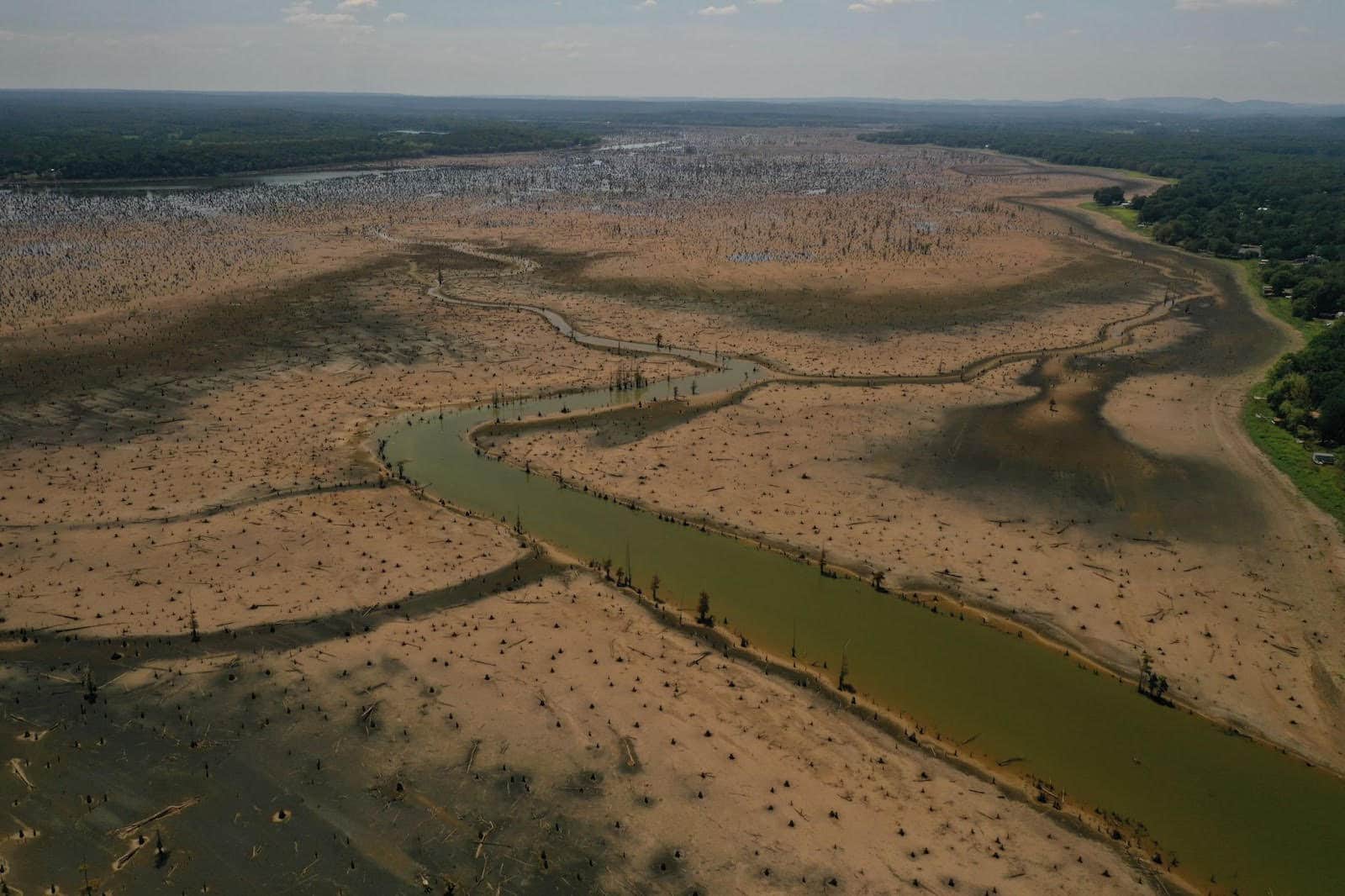
MAYFLOWER — Anyone passing by Lake Conway Monday through Wednesday next week may notice quite a bit of activity overhead as the Arkansas Game and Fish Commission engages in one of the largest single habitat projects the agency has ever undertaken on the lakebed of Lake Conway. More than 600,000 pounds of gravel will be delivered by helicopter to various points of the lake to magnify spawning habitat in the 76-year-old impoundment during its renovation.
“We may get more gravel than that out on the lakebed if conditions are favorable,” Nick Feltz, Fisheries Supervisor at the AGFC Mayflower Office, said. “We have close to 300 bags of gravel loaded and staged for the project, each of which has been filled with 3,000-pounds of gravel. Our goal is to place a minimum of 200 of those bags in the lakebed during the flights. If we get more, even better.”
Feltz says the gravel will be used by bass, crappie and especially smaller sunfish species like bluegill and redear to spawn. While the lake is still productive, the soft, silty bottom that has developed over its lifetime has decreased the amount of high-quality spawning habitat available for fish. Eggs laid in silty bottoms can sink into the muck and suffocate, so placing gravel beds offers fish prime hard-bottom habitat for building nests.
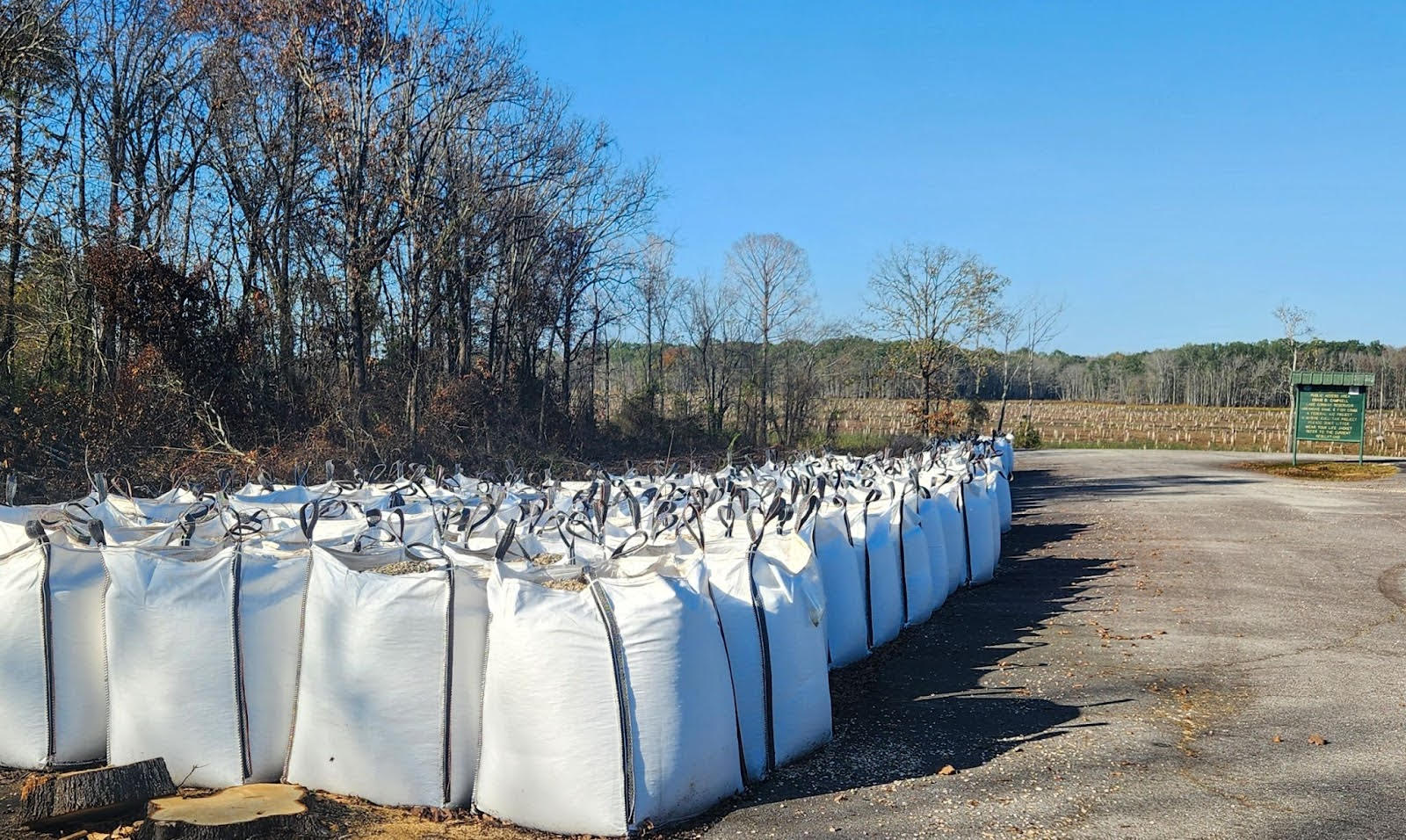
Feltz explained that due to the softness of the lake bottom, hauling this much gravel by truck would have required building temporary roads and many locations would not have been possible to enhance.
“They’re going to be able to move more gravel to more sites in three days than we would be able to move in weeks,” Feltz said. “We’ll be able to do more work closer to shorelines, which will be a little prettier; these will be rough, with no clean borders, but they’re going to be in areas we couldn’t reach otherwise.”
Once the bags are set, AGFC staff will return to the spawning bed sites and spread the gravel by hand to create the beds.
“We looked at using implements mounted to ATVs, but with the amount of stumps, roots and other obstacles, it’s looking like we’re going to be doing everything by hand with rakes in these remote locations,” Feltz said. “Having the helicopters deliver everything during the three-day operation is really going to save a huge amount of time in this process.”
The lakebed will be closed to access during the three-day operation to ensure public safety. Most of the work will be done in the Caney Creek and Pierce Creek arms of the lake, focusing on undeveloped portions of the lake and shoreline.
“This is really just the beginning of the habitat improvements we have planned for Lake Conway during the renovation,” Feltz said. “We also have around 180 to 200 pieces of concrete pipe that we plan to place for fish habitat,” Feltz said. “We had a contracting company donate these to the project, and we’re hoping to have that much more concrete pipe available next year to place as well. We may try to use the helicopter to place some of it if we have time, but most of these concrete structures will need to wait until we refill the lake. Then we can use a habitat barge to sink these structures with less chance of breaking them.”
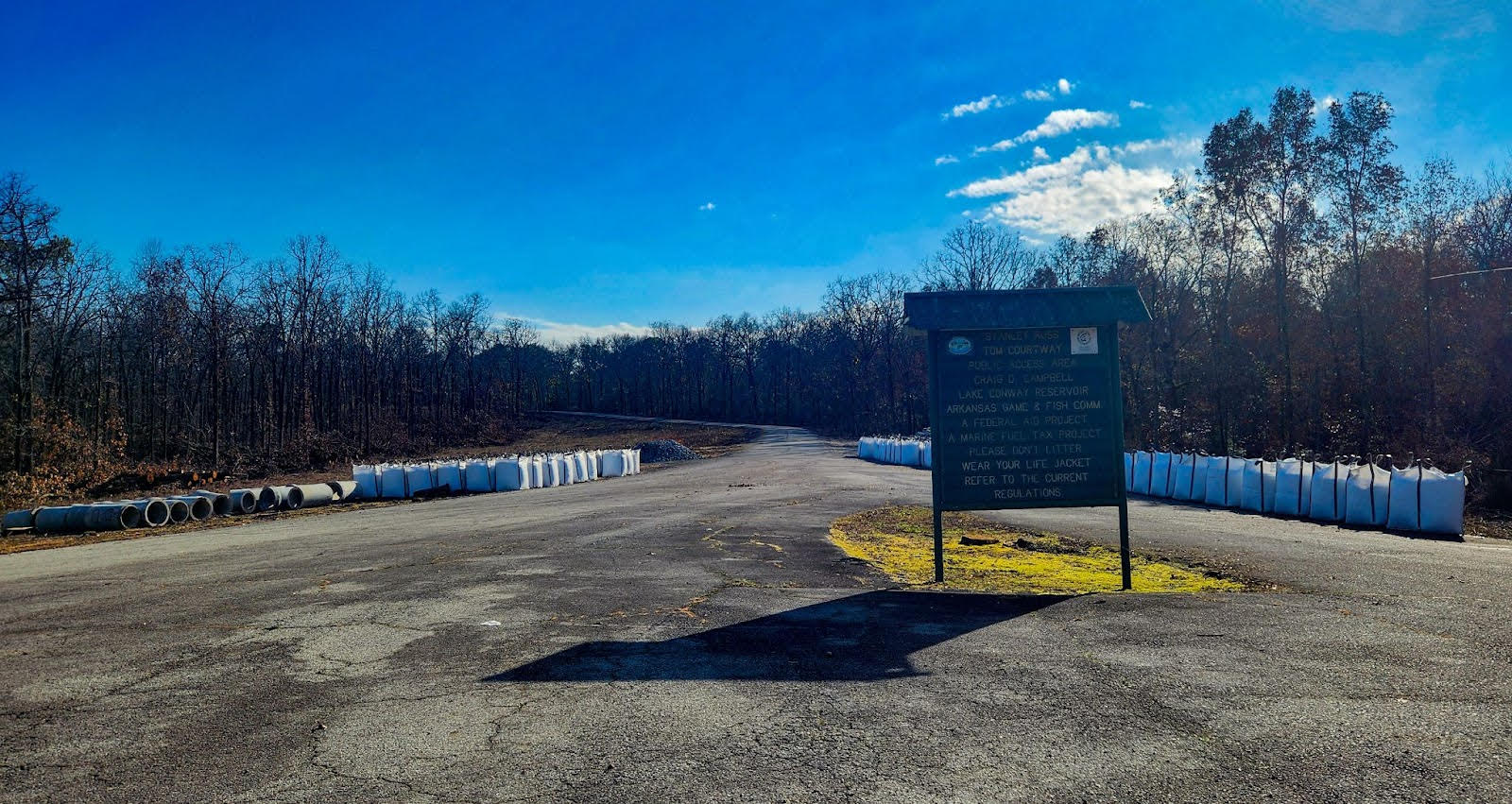
Feltz also plans to have hundreds of concrete spawning disks poured to help with largemouth bass habitat.
“They’re about the size of a trash can lid and slightly concave,” Feltz said. “You can put about 10 pounds of pea gravel in them and they’re a great substitute for the tires people have placed over the years that we know are not great for the water in the long run. I’m really hoping to be able to distribute some of these disks to anglers who want to volunteer their time and create their own spawning areas in the lake once we get a little further along in the project.”
Lake Conway was built in 1948, and at the time was the largest lake ever constructed by a state wildlife agency. Over the last few years the gates and spillway structure had begun to see failures at an increased rate, and the entire structure had outlived its initial life expectancy. The agency has drawn down the lake to begin major habitat enhancements as well as access improvements such as improved boat ramps and parking at Pierce Creek Access and much needed clearing of up to 30 miles of boat lanes for safer navigation. The spillway will be replaced with a new design that does not need manual operation to accommodate rising lake levels and will last at least another 75 years to continue offering fishing memories for anglers in central Arkansas.
Visit www.agfc.com/lakeconway for more information about this project, the largest lake renovation in the AGFC’s 109-year history.
####
CUTLINES:
AERIAL IMAGE
Lake Conway’s lakebed is full of stumps, but lacking in hard bottom needed for fish to spawn; the AGFC plans to remedy that next week through the addition of gravel spawning sites. AGFC photo by Scottie Wyatt.
GRAVEL BAGS
AGFC Staff have filled around 300 large bags with up to 3,000 pounds of gravel each and will move them by helicopter to locations throughout the lake next week. AGFC photo by Nick Feltz.
BAGS AND PIPE
Gravel bags and concrete pipe are staged at two accesses in preparation for the first large-scale habitat project to renovate Lake Conway since its drawdown. AGFC photo by Nick Feltz.
Recent News
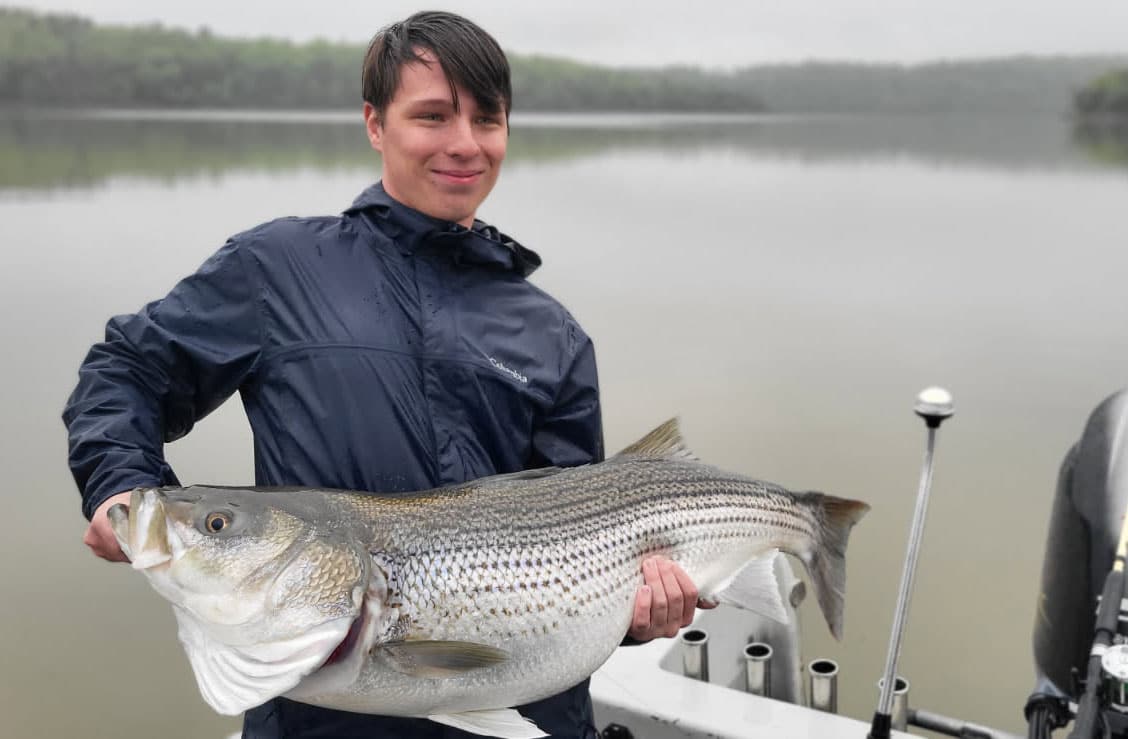
Arkansas Wildlife Weekly Fishing Report
Apr. 24, 2025
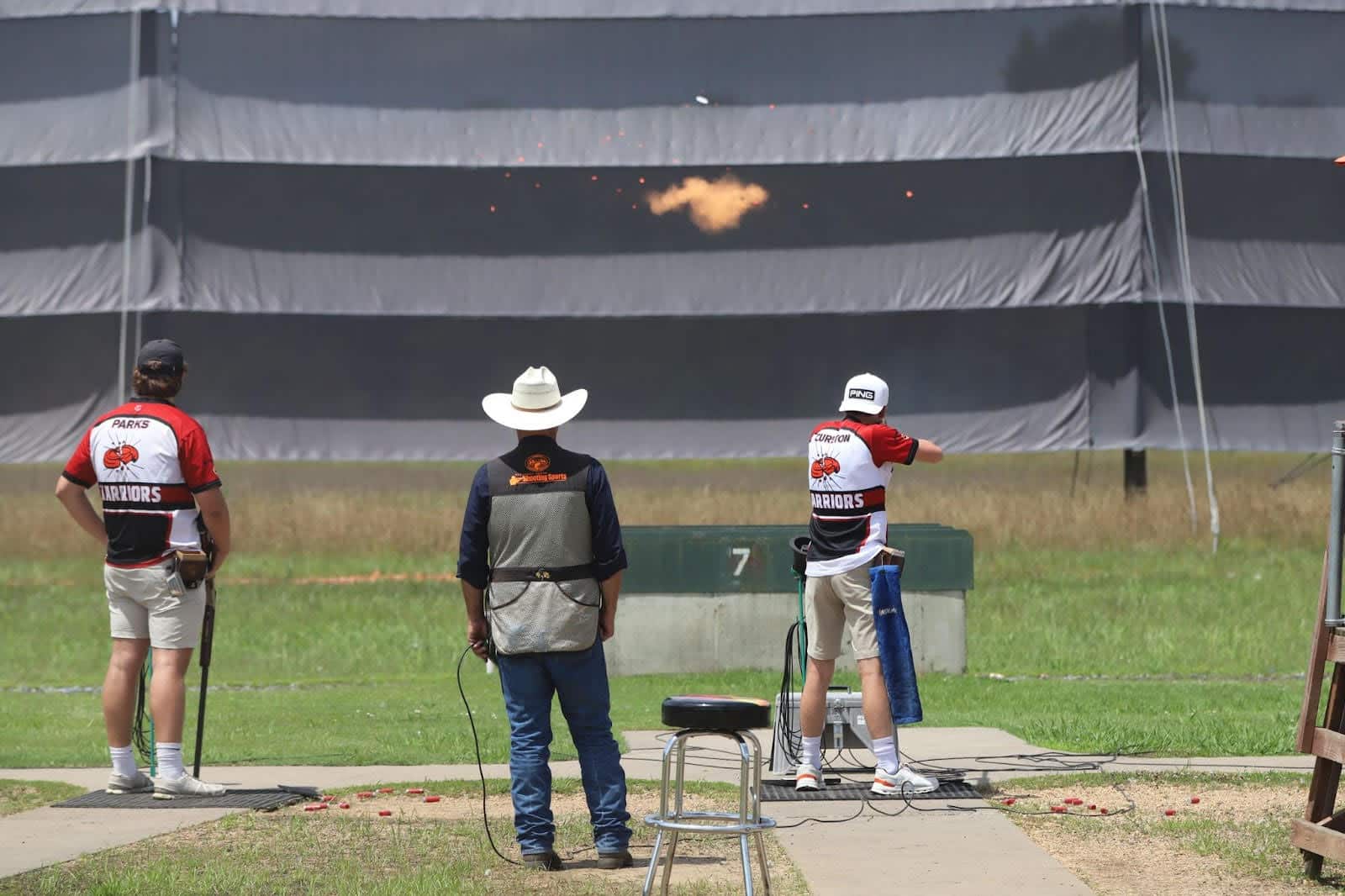
Contenders take aim as shooting sports regionals begin
Apr. 23, 2025
Subscribe to Our Weekly Newsletter E-mails
Don’t miss another issue. Sign up now to receive the AGFC Wildlife Weekly Newsletter in your mailbox every Wednesday afternoon (Waterfowl Reports are published weekly during waterfowl season and periodically outside the season). Fishing Reports arrive on Thursdays. Fill in the following fields and hit submit. Thanks, and welcome!
